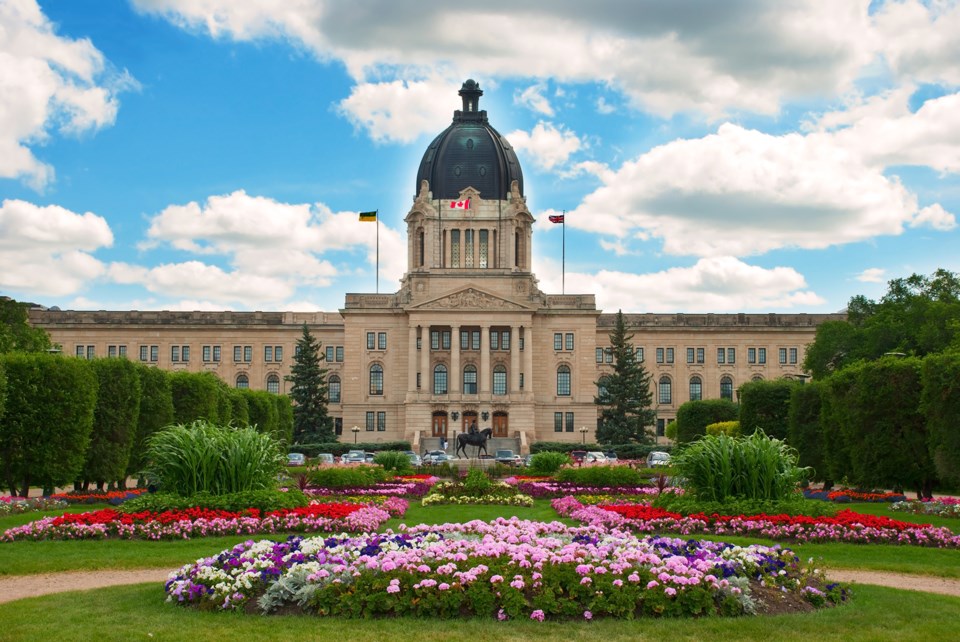The Government of Saskatchewan announced an affordability plan today, August 23, following the release of the provincial first-quarter financial report. The highlight of the plan is a disbursement of $500 directly to Sask residents this fall.
“High global commodity prices are driving growth in Saskatchewan’s economy, creating jobs and improving our budget position," said Donna Harpauer, the Deputy Premier and Finance Minister. “However, higher commodity prices are also driving up the cost of almost everything you buy. Saskatchewan people own the resources. Saskatchewan people should benefit when resources prices are high. That’s why we’re going to use high resource revenues to help address rising costs and to retire up to $1 billion of the province’s debt.”
Following Harpauer's announcement of the 2022 budget this year, Trent Wotherspoon, Official Opposition Finance Critic, said, “What you’ll see right now in the earnings reports from both the potash companies and the oil companies are profits that are through the roof. ... We want those industries to be highly profitable. But the owners of the resources — the Saskatchewan people — also deserve a dividend.”
When Wotherspoon proposed an affordability measure in May using the resource surplus, the Government dismissed the plan immediately, calling it unrealistic.
Point 1 — $500 payout
The Saskatchewan Affordability Tax Credit will provide a payment of $500 to each Sask resident aged 18 or older as of Dec. 31, 2022, and who have filed a 2021 tax return.
Residents who have not yet filed their 2021 return are encouraged to do so as soon as possible.
Point 2 — Backing down on PST expansion
The province will retract parts of the PST expansion that was announced on March 23.
The expansion was criticized by the NDP and by many in the industries affected by the tax. At the time, the Sask Party defended the expansion by saying the money was necessary to address the province’s surgical backlog. Tim McLeod, the MLA for Moose Jaw North, told MooseJawToday.com that unlike the NDP, the Sask Party recognizes that money doesn’t grow on trees.
The NDP call for affordability relief following the budget announcement was mocked on the floor of the legislature by Premier Scott Moe and Resources Minister Bronwyn Eyre, who said they didn’t need economic advice from "that side." They accused the NDP of being antagonistic to the potash and oil industries, who employ many workers in the province and have a right to their profits.
With the province now relenting on the October expansion, PST will not be applied to fitness classes, personal training, and other fitness activities offered through municipal recreational facilities.
PST will not be applied to arts, cultural, and sports programming, or to league memberships for gymnastics, art classes, or acting classes.
Businesses that qualify as small suppliers for GST purposes will be exempt from collecting PST.
PST will not be charged to residents under 18 participating in league or service sporting activities — residents 18 and older will be charged.
The PST expansion will continue to affect ticket admissions to sporting events, concerts, trade shows, fairs, rodeos, movie theatres, professional water parks, and entertainment admission such as escape rooms, batting cages, and arcades.
Point 3 — Small business tax rate reduction
The small business tax rate reduction will be extended at 0 per cent retroactive to July 1, 2022. The restoration of the rate will be delayed to July 1, 2024.
An estimated $93.1 million be saved by small businesses over the next three years, an average of $3,000 for each of the 31,000 small businesses in the province.
Point 4 — Retirement of operating debt
The province’s resource surplus is even bigger than noted in the budget projection — provincial debt is now forecast to be $1.7 billion lower by fiscal year-end than projected.
The projected surplus will allow for up to $1 billion in operating debt to be retired. The province will not need to borrow for operations.
Debt retirement and lower borrowing results in lower financing charges due to an estimated $49 million decrease in interest costs.
More information is available at Saskatchewan.ca/affordability.




